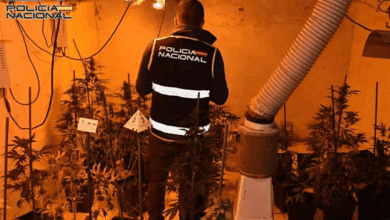
After lengthy discussions and numerous proposals, the regional and municipal authorities of Catalonia, along with AENA—the company that manages the airport—have finally reached a joint decision on how to support homeless individuals present at Barcelona Airport (El Prat). Since the beginning of the year, these people had been left without social assistance because Barcelona city services had stopped operating in this area.
Under the new agreement, a special task force will now be created to handle the most complex cases. This group will be overseen by the government of Catalonia (Generalitat). This body will decide how and where to refer individuals who do not belong to Barcelona or El Prat de Llobregat. Additionally, the Generalitat will coordinate between various departments to ensure a comprehensive approach to addressing homelessness, and will appoint responsible specialists for ongoing oversight of the situation.
The Barcelona municipality has already signed the agreement, emphasizing that regional authorities will now take on most of the responsibility for people living at the airport and its surroundings. For El Prat, the problem has proven too large to handle alone, while Barcelona cannot be responsible for all the homeless people in the region. As a result, each municipality will now attend only to those connected to its territory, while the Generalitat will coordinate the most complicated cases.
The document outlining the distribution of responsibilities provides for the Generalitat to fund the salaries of two social workers from Barcelona and one from El Prat. These professionals will be the first to meet homeless individuals at the airport and will oversee their subsequent care. Barcelona will send its staff to terminals and parking areas to establish contact with people and persuade them to accept emergency assistance. If necessary, they will also help with transferring individuals to other local services.
El Prat will assign an additional specialist to work in the airport’s vicinity, conduct assessments, and organize the support needed for those connected to the city. AENA, in turn, will provide workspace in Terminal 2, as well as communications, furniture, cleaning services, and access to infrastructure. It will also coordinate the efforts of security services, police, and other airport operators to ensure the protection of social workers and address any emerging issues.
Barcelona authorities note that the new regulation is important for several reasons: there is now a legal framework for operating outside the city, a dedicated budget has been allocated, and there is an opportunity to refer complex cases to other municipalities. However, it remains unclear how exactly the transfer of people between cities will take place. Municipalities acknowledge they cannot handle severe mental illnesses or serious pathologies without healthcare support. Officials emphasize that joint programs are needed so that the entire burden does not fall on one city. Meanwhile, many large cities in Catalonia still lack shelters for the homeless, and those that have opened them are facing overload due to the influx of people in need. Authorities believe it is important to closely examine what is happening at transport hubs, where people without housing often gather.












